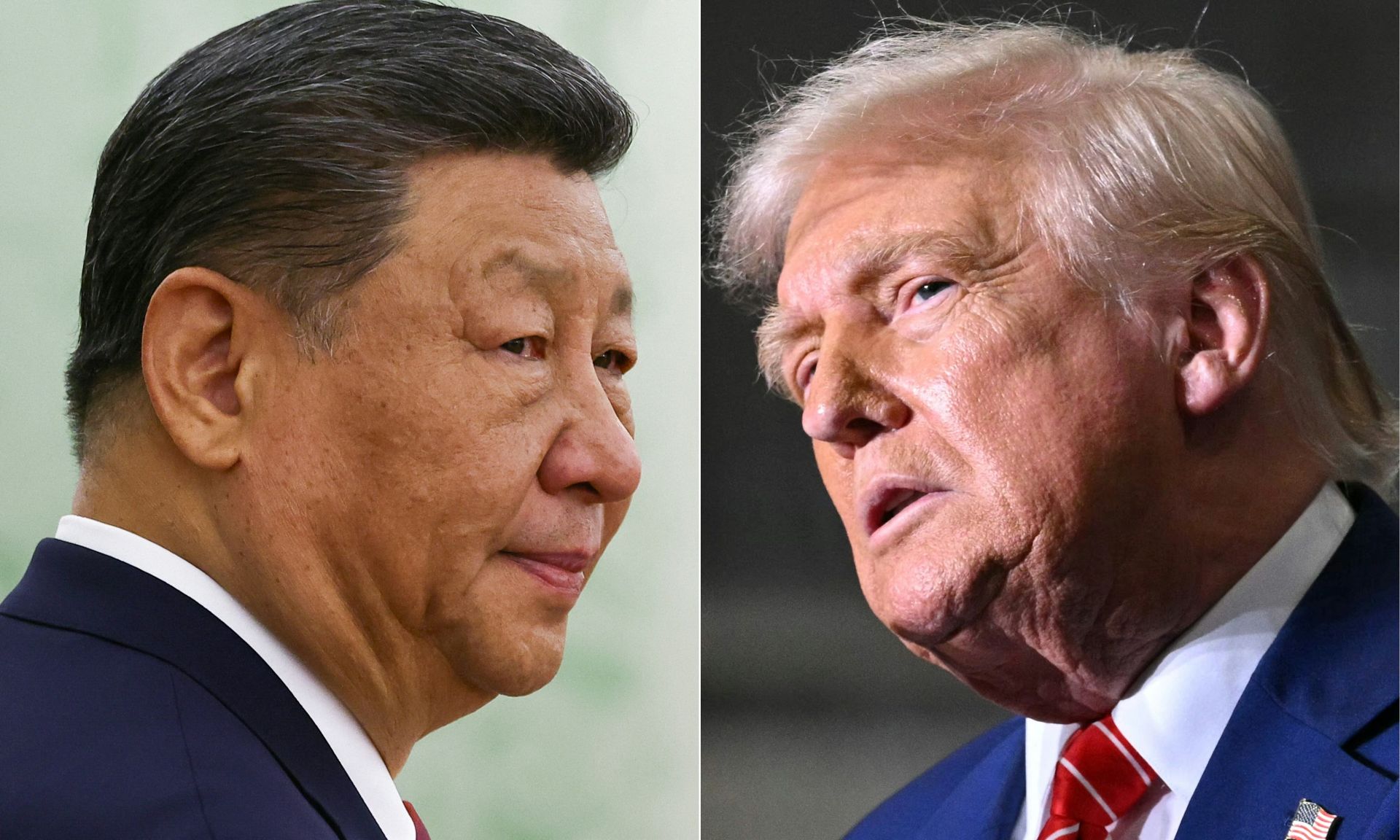- Home
- Middle East
- President Donald Trump Hails Rare Earth Deal with China, Praises "Excellent" Relations

This file combination of pictures created on June 5, 2025 shows, L/R, Chinese President Xi Jinping at the Kremlin in Moscow on May 8, 2025 and US President Donald Trump at US Steel - Irvin Works in West Mifflin, Pennsylvania, May 30, 2025. ©Evgenia Novozhenina and Saul Loeb / Various Sources / AFP)
U.S. President Donald Trump on Wednesday welcomed a tentative agreement reached overnight in London between Washington and Beijing, which he says will enable the supply of rare earth minerals to the United States, praising the “excellent” relationship between the two countries.
"An agreement with China has been reached, pending final approval from President Xi and myself," Trump wrote on his social media platform, Truth. "The necessary rare earth elements will be provided."
On the U.S. side, “we will uphold our part, particularly by allowing Chinese students to come to our universities,” he added.
American and Chinese negotiators announced late Tuesday they had reached a “general framework” to smooth over trade disputes, leaving final validation to their respective presidents.
This follows two days of meetings in London, which came after initial discussions last month in Geneva, Switzerland, where the two sides reached a temporary deal to reduce mutual tariffs.
China’s vice premier, the country’s top trade negotiator with the U.S., called for “strengthening bilateral cooperation,” according to state media.
Rare earths were a key focus of the negotiations in London. The U.S. is aiming to restore the pace of shipments of these strategic minerals, currently deemed too low by the White House.
These resources are vital for electric vehicle batteries, wind turbines, and defense systems like missiles, radars, and satellites.
"Strengthen Cooperation"
Beijing, for its part, expects Washington to reconsider certain export controls on U.S. goods, especially technological ones, destined for China.
Li Chenggang, China's International Trade Representative and a member of the negotiation team in London, said Tuesday evening that the talks were “very professional, rational, in-depth, and candid.”
He expressed hope that the progress made would help build mutual trust.
In a statement issued Wednesday by state media, Chinese Vice Premier He Lifeng, who led the delegation in London, stressed the need for both countries to further elevate their level of cooperation.
“Both sides must now [...] continue to broaden their consensus, reduce misunderstandings, and strengthen cooperation,” he said, as quoted by Chinese state broadcaster CCTV.
According to the network, the two countries achieved “new breakthroughs in addressing each other’s economic and trade concerns.”
Struggling Exports
Global markets reacted positively Wednesday to the renewed de-escalation between Beijing and Washington, reviving hopes for a lasting trade agreement between the two powers.
Tokyo (+0.54%) and Seoul (+1.23%) stock exchanges closed higher. European markets were also trending positively.
The London talks aimed to extend—and safeguard—the truce reached a month earlier in Geneva.
Set to last until August, the truce led both economic giants to significantly lower their respective tariffs for 90 days.
However, tensions resurfaced when Trump accused Beijing of not honoring the de-escalation terms signed in Geneva.
Subsequently, Trump and Chinese President Xi Jinping held a phone call last week, which the U.S. leader described as positive.
In Geneva, Washington had agreed to reduce tariffs on Chinese goods from 145% to 30%, in exchange for a similar move by Beijing, lowering tariffs on U.S. products from 125% to 10% for the 90-day period.
Overall, U.S. tariffs on Chinese goods now average 55%, Trump stated Wednesday, factoring in the 30% from the Geneva agreement and approximately 25% in surcharges previously imposed before his return to the White House.
The effects of the trade war are already being felt, with Chinese exports to the U.S. dropping by 12.7% in May compared to April, according to official data from Beijing.
By Clément Zampa, James Rybacki, and Erwan Lucas / AFP
Read more



Comments